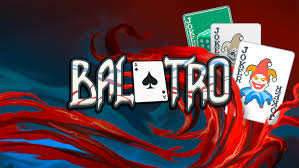The Joker card is one of the most intriguing and multifaceted elements jokercard balance found in a standard deck of playing cards. While it was originally introduced as a trump card for the game of Euchre in the mid-19th century, it has since evolved into a versatile symbol of unpredictability and spontaneity, often representing chaos, trickery, and even subversion in various cultural contexts.
Historical Origins
The Joker card’s origins can be traced back to the game of Euchre, which gained popularity in the United States during the 19th century. It was introduced as a wild card, serving as a powerful ally in gameplay, allowing players to substitute it for any card to enhance their chances of winning. Its design varied significantly, with early versions depicting a jester or harlequin, complete with flamboyant costumes and exaggerated features. This representation tied the card to themes of folly and entertainment, making it a fitting symbol for its role in gameplay.
Evolution of the Joker
As card games evolved, so did the Joker. Its presence expanded beyond just Euchre and into various other card games, including Poker, Rummy, and others. With this expansion came a diversification of the Joker’s symbolism. In many contexts, the Joker has come to embody the unexpected and the chaotic elements of life. It can serve as a reminder of the unpredictable nature of fate, often disrupting established order in gameplay.
In the realm of Tarot, the Joker is somewhat akin to the Fool card, representing new beginnings, innocence, and potential. The Fool, much like the Joker, embraces the chaos of life and encourages players to take risks and venture into the unknown.
Cultural Significance
The Joker card has transcended its origins in gaming to become a broader cultural symbol. In literature, art, and popular culture, the Joker embodies chaos and unpredictability. The archetype of the “Joker” has been adopted in various forms, perhaps most famously represented by the character from the DC Comics universe. The Joker, as a character, encapsulates themes of anarchy, madness, and rebellion against societal norms, drawing a stark contrast to the more structured figures often depicted in traditional narratives.
Moreover, in psychology, the Joker can symbolize the shadow aspect of the human psyche, representing the chaos within each individual that often challenges established norms and expectations. This duality makes the Joker an intriguing subject for analysis in both psychological and philosophical discourses.
The Joker in Modern Gaming
In contemporary gaming, the Joker card continues to play a pivotal role. It serves as a wild card in many games, maintaining its reputation as a harbinger of unpredictability. Players often hold onto the Joker, using it strategically to turn the tide of the game at crucial moments. Its inherent ability to subvert expectations makes it a powerful tool for both amateur and professional players alike.
In recent years, the Joker card has also found a place in digital gaming, where its unpredictability can amplify the thrill of gameplay. Many online card games and gambling platforms incorporate the Joker, enhancing the excitement of games by introducing elements of chance and surprise.
Conclusion
The Joker card is a rich symbol with a deep history and significant cultural resonance. From its origins as a trump card in Euchre to its representation of chaos and unpredictability in broader contexts, the Joker continues to captivate players and audiences alike. Whether in the realm of gaming, psychology, or popular culture, the Joker remains a testament to the complexity of chance and the inherent unpredictability of life. Its allure lies in its duality—a wild card that can lead to both triumph and disaster, reminding us that in both games and life, the unexpected is often the most exciting element of all.

